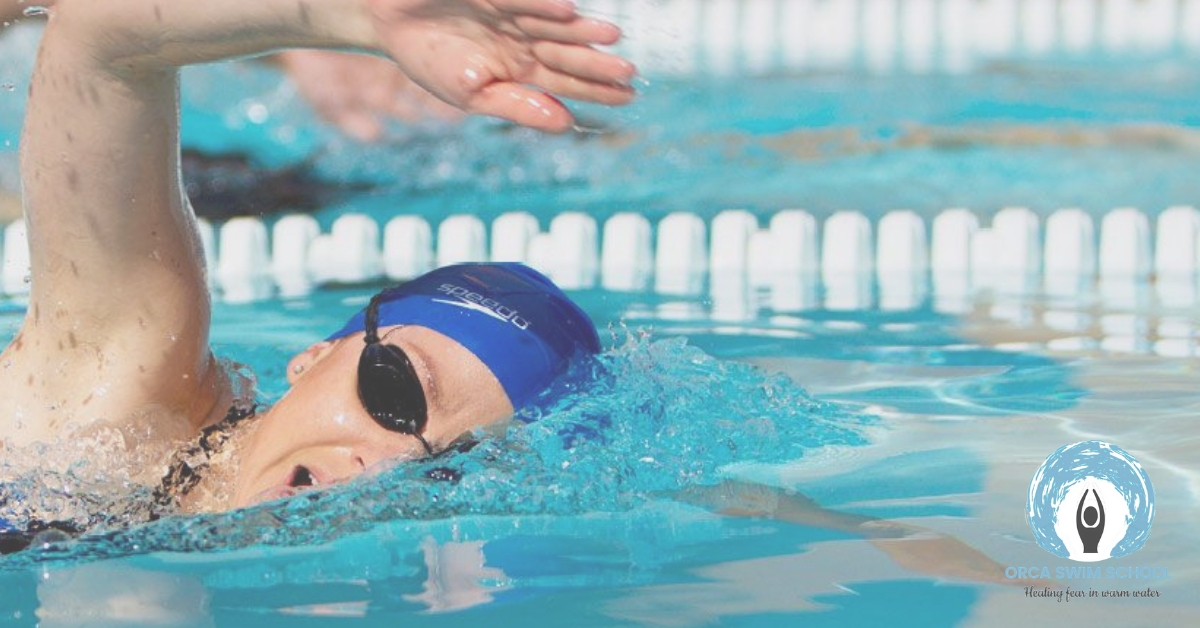
Are you a Swimmer or swimmer? Do you know the difference and how it could save your life?
Perhaps you were a child who grew up with parents who took you to the pool and you played together. At an early age, your parents passed you between them in the water so you could learn how the water worked. Then, say by age 2 or 3, you could move from here to there on your own, come up for air when you needed it, and turn onto your back to rest. Your movements were probably fast, your fingers were apart, and you held your breath most of the time, but it worked. You felt safe and you liked being in the water. You felt the water holding you up; you could propel yourself, and you were in control.
 Your dad may have said to his friends at a play date, “Susie can swim! I mean, she can’t swim, but she can swim!” The dad is referring to two things. But he’s using the same word. Susie knows how the water works and has become independent for short periods of time. She can “Swim.” But she doesn’t know formal strokes yet: she can’t “swim.” The capitalized Swim gets prominence for its meaning of safety. To be able to Swim safely requires knowing how the water works with one’s body. The non-capitalized “swim” means strokes. Strokes do not provide safety but they do provide efficiency: greater distance per stroke and less energy output over the distance.
Your dad may have said to his friends at a play date, “Susie can swim! I mean, she can’t swim, but she can swim!” The dad is referring to two things. But he’s using the same word. Susie knows how the water works and has become independent for short periods of time. She can “Swim.” But she doesn’t know formal strokes yet: she can’t “swim.” The capitalized Swim gets prominence for its meaning of safety. To be able to Swim safely requires knowing how the water works with one’s body. The non-capitalized “swim” means strokes. Strokes do not provide safety but they do provide efficiency: greater distance per stroke and less energy output over the distance.
The point of learning to swim is safety: the ability to rely on oneself for one’s safety in water over one’s head.
The point of strokes is efficiency or speed. This would be required for safety if you are being chased by something dangerous that you could outswim. But not even Michael Phelps can outswim a small fish.
Once a person learns to Swim, they can then learn to swim.
However, learning to swim (strokes) does not imply or guarantee to learn to Swim (safety).
If learning to Swim (be safe in any water) is on your goal list make sure you know what you are looking for in a class. People ask all the time, “If Joey knew how to swim, then why did he drown?”. The problem many times is he didn’t know how to Swim and tried to rely on swim (stroke instruction) for safety.
This article was developed from experts of Melon Dash’s writing. Miracle Swimming has been bringing forth the conversation about the disconnection in the definitions of what it means to swim.



